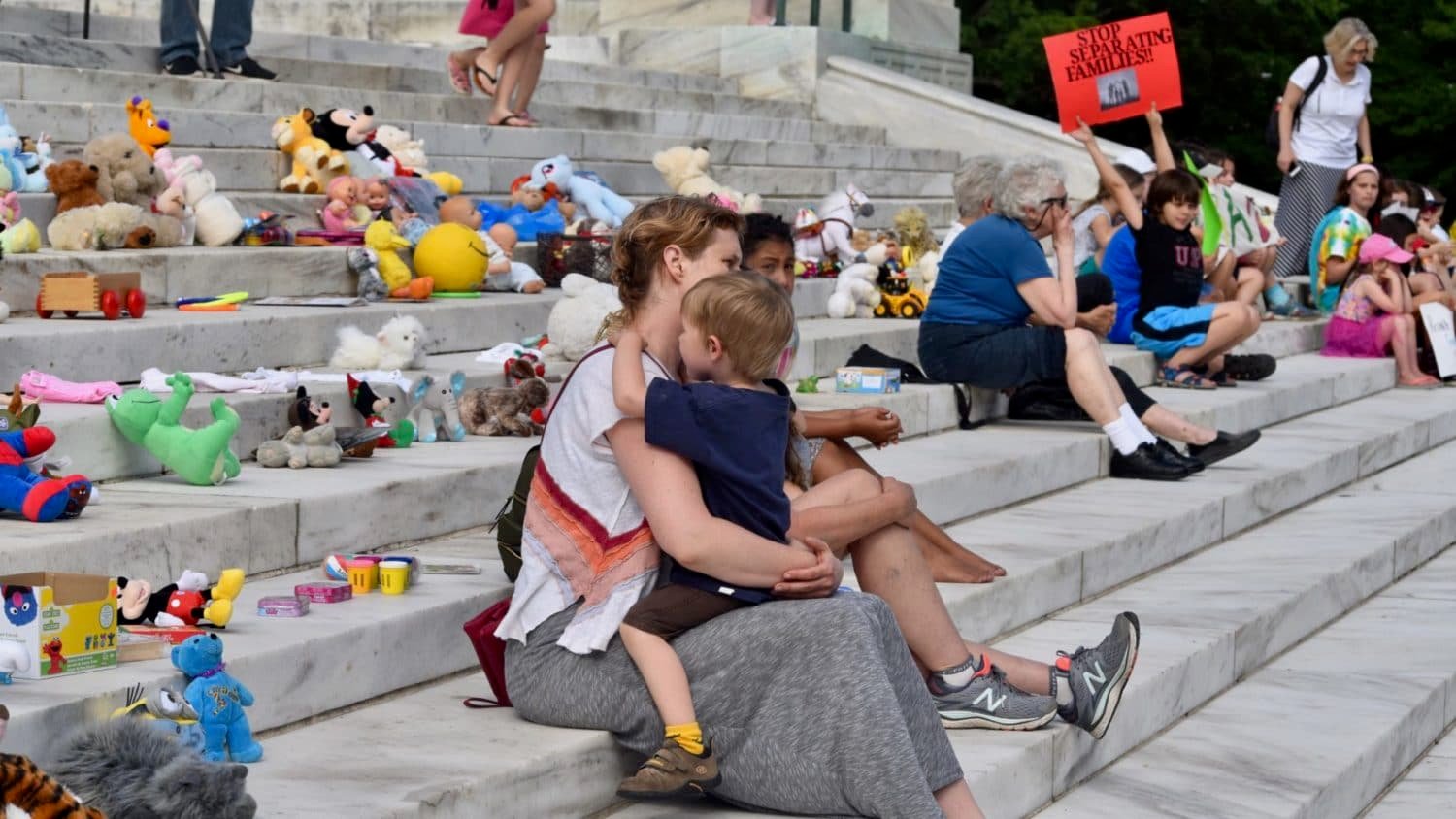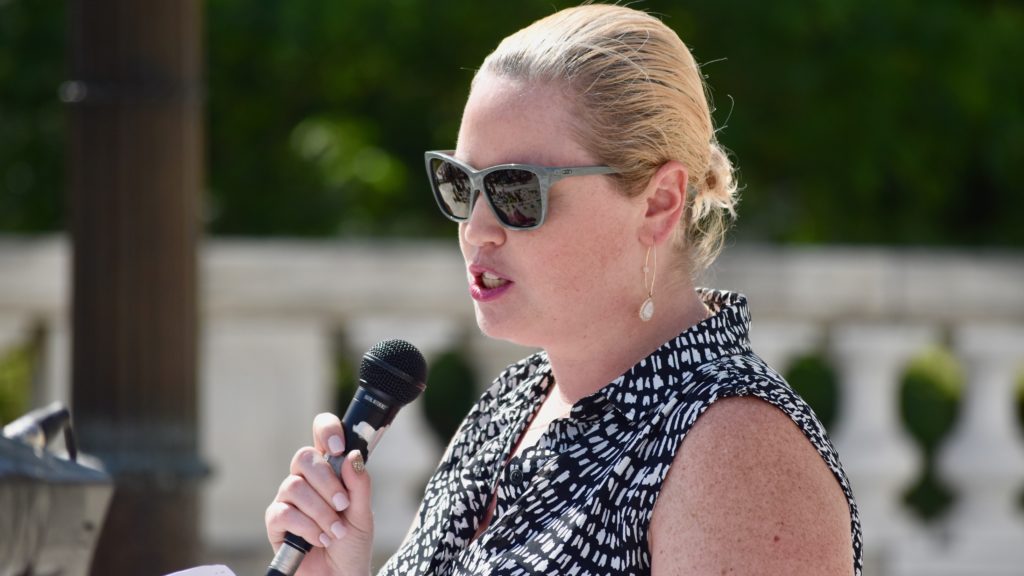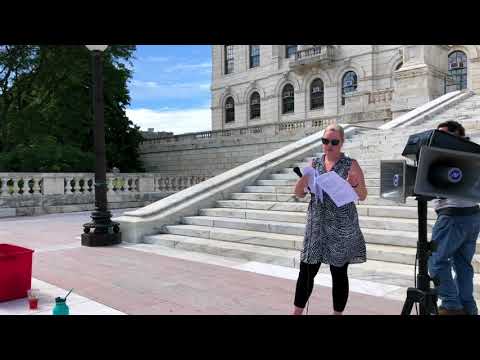The trauma of being separated from your parents at the border
The children that we are talking about today have already experienced countless traumatic events prior to their migration to the United States. Many of them have witnessed or been victims of gang violence; they have experienced loss, trauma and neglect. During their migration, children and adults are exposed to multiple stressors, as they make their way towards safety.[note]NCTSN Fact Sheet.
June 24, 2018, 10:56 am
By Casey Gallagher
The children that we are talking about today have already experienced countless traumatic events prior to their migration to the United States. Many of them have witnessed or been victims of gang violence; they have experienced loss, trauma and neglect. During their migration, children and adults are exposed to multiple stressors, as they make their way towards safety.[note]NCTSN Fact Sheet. Unaccompanied Migrant Children, National Child Traumatic Stress Network. (2015). Retrieved June 18, 2018.[/note] Now our tyrant-in-chief is subjecting them to yet another inhumane and violent act of trauma and attachment disruption, as he orders Border Patrol to rip them from their caregiver’s arms, detain and imprison them. These children are not political pawns. They are not our prisoners of war, to be left in the care of already proven negligent defense contractors. They are children seeking safety and a better life here in the United States.
Children who experience chronic stress and attachment disruptions early in life have compounding factors that put them at a higher risk of experiencing emotional, behavioral, mental health and physical health conditions. If their caregiver is no longer present to buffer the stress during this traumatic event and help the child build resilience, they are more likely to have immediate and long-term emotional and behavioral challenges. In the short term, these children will feel sad and afraid, have nightmares and sleep disturbances, lose their appetite, withdraw from others, and at times, have angry outbursts. In the long-term, children who are exposed to chronic, prolonged traumatic events and attachment loss, experience alterations in their brain development, which include: disrupted sleep and eating patterns; increased medical problems; emotional dysregulation; problems with focus, learning and language development; poor impulse control; anger, aggression and low frustration tolerance; risk-taking behaviors; and feelings of low self-esteem, shame and guilt.[note]Spinazzola, Joseph & Cook, Alexandra & Ford, Julian & Lanktree, Cheryl & Blaustein, Margaret & Cloitre, Marylene & DeRosa, Ruth & Hubbard, Rebecca & Kagan, Richard & Liautaud, Joan & Mallah, Karen & Olafson, Erna & van der Kolk, Bessel. (2005). Complex Trauma in Children and Adolescents. Psychiatric Annals. 35. 390-398. 10.3928/00485713-20050501-05.[/note]. In addition to this, their physical health and mental health outcomes are more likely to be worse in adulthood, as a result of these early adverse childhood experiences.[note]Burke-Harris, Nadine. How Childhood Trauma Affects Health Across A Lifetime. Ted Med Talks. (2014) Retrieved June 18, 2018.[/note]
We know that folx who have been detained here due to their undocumented status have been neglected, mistreated and have had their basic human rights violated.[note]Ahlquist, Steve. Lilian Calderon describes her processing, orientation and detention by ICE. UpriseRI. Providence, RI. February, 14, 2018. Retrieved June 18, 2018.[/note][note]Human Rights Watch. In the Freezer: Abusive Conditions for Women and Children in US Immigration Holding Cells. February, 2018. Retrieved June 18, 2018.[/note] The detention of adults, when compounded by the uncertainty of its length, is known to cause hopelessness, suicidality, and psychological distress.[note]Inter-Human Rights Court Report. The Psychosocial Impact of Detention and Deportation on U.S. Migrant Children and Families. August, 2013. Retrieved June 18,2018.[/note] We can assume that these children, who are now in the custody of defense contractors and unskilled staff members of these so called “non-profit” detention centers, are not trained on how to support and care for traumatized children. They will not treat them with dignity or provide them with basic needs.
I watched a video where Antar Davidson, the whistleblower from one of the Southwest Key facilities, described being reprimanded and threatened by a higher ranking staff member for disobeying orders to tell three siblings that they were not allowed to hug each other after having to separate once more, after being torn away from their mother earlier that day.[note]Meet the Migrant Child Detention Center Whistleblower Speaking Out Against Family Separations. Democracy Now. June 18, 2018. Retrieved June 18,2018.[/note] It is sickening to know that we are treating these children like federal inmates, when they have not committed, nor been charged with a crime. There is a significant financial gain for our country to be holding these children in custody[note]Dayen, David. How Private Contractors Enable Trump’s Cruelties at the Border. The Nation. June 20, 2018. Retrieved June 20, 2018.[/note] and therefore, we are all responsible for the welfare of these children and need to be held accountable to take action now.
The last aspect of trauma that I want to highlight is our governments forced assimilation of American culture on these children. They are being forced to remove their clothing and leave their belongings when they enter these detention centers.[note]Baker, Peter C. A Janitor Preserves the Seized Belongings of Migrants. The New Yorker. March, 12, 2017. Retrieved June 18, 2018.[/note] They are being forced to eat our food, speak our language, worship the fascist who calls himself our president,[note]Paiella, Gabriella. Huge Mural of Trump Hangs in Detention Center for Migrant Children. June 14, 2018. Retrieved June 18, 2018.[/note] and learn our whitewashed history. This draws away from one of the primary aspects that fosters resiliency through traumatic events, which is a connection to others- or a sense of belongingness to your community and your culture.[note]R. Pat-Horeczyk, D. Brom, & J. M. Vogel. (2013). Helping children cope with trauma: Individual, family, and community perspectives. NY: Routledge.[/note][note]Vogel, J. M. & the Family Systems Collaborative Group. (2017). Family Resilience and Traumatic Stress: A Guide for Mental Health Providers. Los Angeles, CA, and Durham, NC: National Center for Child Traumatic Stress.[/note] If these children are to remain in detention centers, tent cities, and foster care, we will be stripping them of their culture and their identity. This is not the first time that we, as Americans, have done this to human beings who have stepped on to our so called American soil, and our history of traumatization through colonization began the moment we stepped on to this land and claimed it as ours. While the trauma of losing one’s culture may be easy for most white Americans to ignore, it is one of the most significant intergenerational traumas that we are forcing these children to endure.








